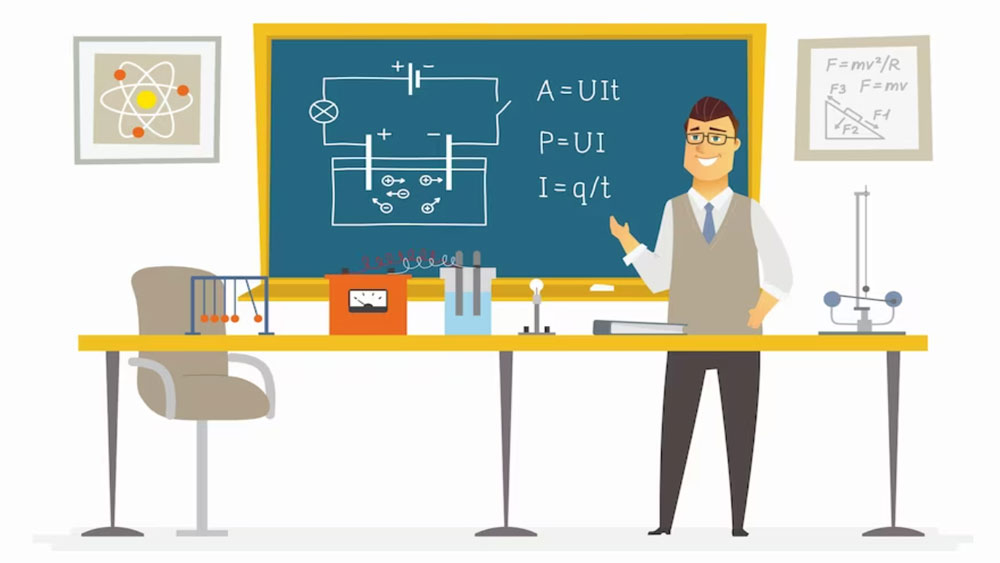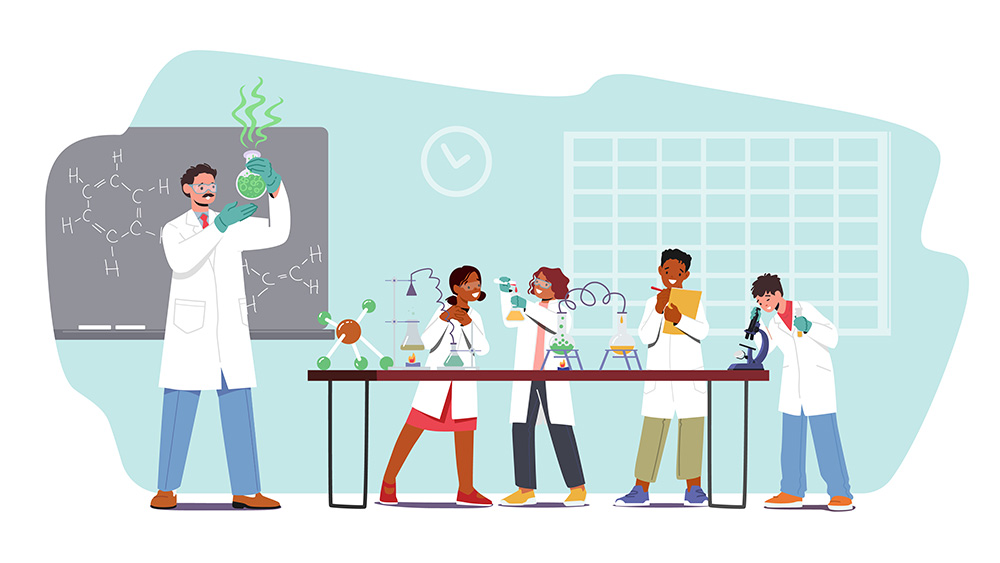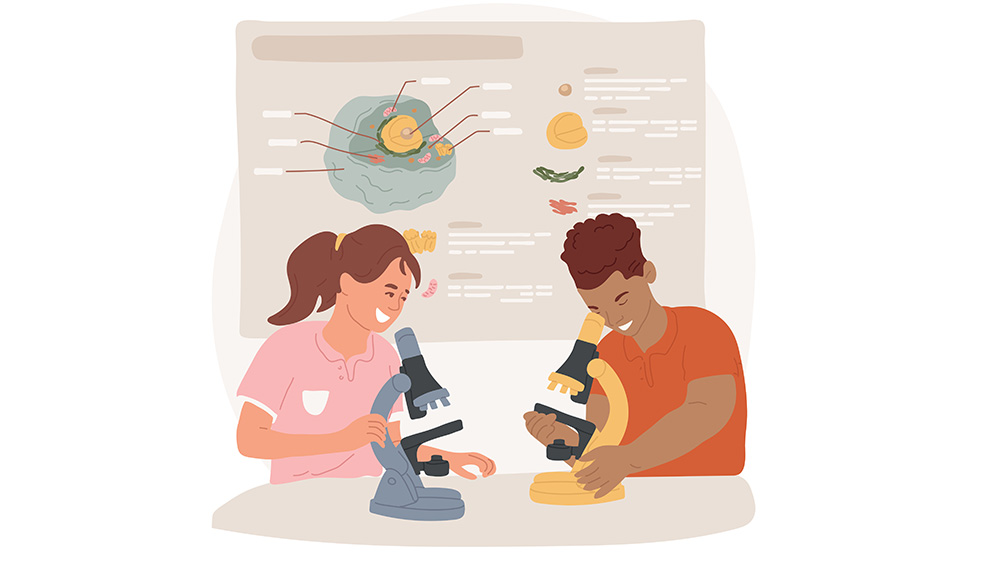Why To Choose IGCSE Physics?
Even though it could be taken by students of various ages, the IGCSE is the most widely recognized international qualification for students between the ages of 14 and 16. It is tried, true, and dependable.
It is taught in more than 4800 schools across more than 150 countries and offers students a choice of 70 disciplines in any combination.
IGCSE’s programmes strike a balance between in-depth knowledge and understanding of a subject and aid in the development of the abilities students need for their subsequent academic or professional endeavours.
The Cambridge IGCSE Physics curriculum fosters a variety of transferable abilities, such as handling data, using the scientific method, and solving real-world problems. Students acquire important attitudes like concern for precision and accuracy, impartiality, integrity, open-mindedness, initiative, and creativity. They gain the fundamental scientific knowledge needed to go to more advanced coursework or career.
The Cambridge IGCSE Physics curriculum encourages students to:
- They are self-assured, eager to learn about science, sceptical of theories, and articulate their viewpoints using scientific terminology.
- Responsible, methodical, and safe behaviour whether working alone or in a group.
- Introspective, interested in scientific topics that impact the individual, the community, and the environment, and benefiting from their experiences.
- Inventive, addressing new issues eager to learn scientific techniques, self-assured, and artistically engaged; interested about scientific ideas and their implementation in the world.
Learners can: using Cambridge IGCSE Physics
- Enhance their knowledge of the technical world
- Take a knowledgeable interest in scientific issues
- Understand the value (and limitations) of the scientific method and how to use it in other disciplines and daily life
- Develop the necessary characteristics, such as a desire for correctness and precision, impartiality, integrity, research, initiative, and originality.
- Cultivate a passion for and concern for the environment
- A greater understanding of how society, the economy, technology, ethics, the community, and the environment affect and constrain scientific investigation.
- Gain knowledge of the scientific techniques necessary for both future studies and daily living. Employ an IGCSE physics tutor in Gurgaon, India from GIBM to help your ward!
Acceptance and acclaim on a global scale
The foundation for the international acceptance of our programmes and qualifications is our competence in curriculum, learning and teaching, and evaluation. The information and skills that make up Cambridge IGCSE tutions Physics provide students with a strong framework for further study. Candidates who receive grades A* to C are quite well prepared to pursue a variety of courses, including the Cambridge International AS and A Level Physics.
Learners have a strong foundation for further study because to the mix of information and abilities in Cambridge IGCSE Physics. Candidates who receive grades A* through C are ready to enrol in a variety of courses, including Cambridge International AS and A Level Physics.
Aims of Learning IGCSE Physics
A curriculum based on this curriculum would have the objectives described in the Objectives.
Using relevant examples and applications from your community, throughout the world, or in the past, as well as through group experimental effort, you can accomplish some of the objectives.
These goals are to
Give all students a fulfilling educational experience, regardless of whether they continue studying science after this level.
Allowing students to get the knowledge and understanding necessary to:
- Develop educated interests in scientific issues and become self-assured citizens in a technology environment.
- Be prepared for studies after completing the Cambridge IGCSE.
Allow students to comprehend the limitations of the scientific process and the fact that science is founded on evidence.
Acquire abilities that:
- Are pertinent to physics research and practise.
- Are practical in daily life
- Promote the use of a methodical approach to issue solving
- Encourage safe and effective behaviour
- Encourage the use of scientific terminology for communication
Allow students to understand that:
- Science is susceptible to restrictions and influences from social, economic, technological, ethical, and cultural factors.
- Both positive and negative effects on the individual, the community, and the environment may result from the use of science.
Assessment at a glance
Three tests are given to all candidates.
Candidates for Papers 1, 3, and Paper 5 / Paper 6 should have studied the content of the Core subjects or be predicted to receive a grade of D or lower. These contenders will be qualified for grades C through G.
Candidates who have completed the extended subject material (Core and Supplement) and who anticipate receiving a grade of C or higher should enter for Paper 2, Paper 4, and Paper 5 / Paper 6. Scores A* to G will be available to these applicants.
Objectives of Assessment
The evaluation’s goals (AOs) are as follows:
AO1 Understanding with knowledge
The following knowledge and comprehension should be demonstrated by candidates:
- Laws, definitions, ideas, concepts, and phenomena of science
- Words, phrases, and jargon used in science (including quantities, symbols, and units)
- Equipment and tools for science, as well as safety precautions and operation methods
- Applications of science and technology with its effects on society, the economy, and the environment.
The factual information that applicants may be asked to remember and explain is referred to as subject content. Additionally, candidates will be tasked with answering questions that call for them to transfer their knowledge from one subject area to another and to use this material to unexpected circumstances.
Problem-solving and information handling AO2
Candidates must be able to, in writing or through the use of other written formats (such as symbolic, pictorial, and numerical), do the following:
- Find, choose, assemble, and show data from a range of sources.
- Transferring data from one format to another
- Manipulating data, both numerical and otherwise
- Utilise data to spot trends, report patterns, and make assumptions.
- Provide logical justifications for occurrences, patterns, and links
- Create forecasts and theories
- Solve issues, some of which may be quantitative.
Candidates may be required to apply the concepts and principles from the curriculum to new situations in a rational, deductive manner in order to pass questions that assess these abilities. Call GIBM for tuition to take help from an IGCSE Physics tutor!
AO3 Experimental abilities and research
Candidates must to be capable of
- Demonstrate understanding of safe use of methods, tools, and materials, including when necessary the ability to follow a set of instructions.
- Plan your experiments and research.
- Make observations, measurements, and estimates, and record them.
- Interpreting and assessing experimental findings and data
- Analyze techniques and offer suggestions for improvement.
FAQ'S
How can I prepare for the IGCSE Physics Paper 6?
The ATP (alternative to practical) paper is Paper 6. Since numerous educational institutions lack access to a real laboratory, most choose this over paper 5 (practicals). However, after the pandemic hit, paper 6 has been chosen by all schools. To know more call GIBM for IGCSE tutions!
How can I ace the IGCSE Physics exam?
According to a IGCSE physics tutor in Gurgaon Simply keep learning, asking questions, solving problems, solving problems, and so on. Move on to Paper 2 after doing a tonne of studying. You should become exceptionally proficient at solving it because most of the problems are from last year’s tests. Proceed to Paper 4 and do a lot of solving. The questions aren’t often the same as they were in prior years, but the concepts are always the same. Begin working on Paper 6 and make sure you comprehend the tasks at hand, the questions, the precise requirements of the questions, the variables you have, the variables that can be changed, etc.
Where can I find IGCSE Physics topic-wise questions with the help of a tutor?
IBGA known for its IGCSE Physics tutor, is an institute that offers IGCSE exam tutoring. We are all aware that practicing the prior year’s exam questions is one of the most crucial exam preparation strategies. This also holds true for the IGCSE board. IBGA takes care of things well for you. They have a well-maintained database of previous year’s papers for every topic, from physics to historical events, and this is quite helpful for achieving high marks on IGCSE tests.
What is the maximum score with the help of IBGA’s tuition that may be obtained on the Cambridge IGCSE Physics examination?
In theory, you may receive full marks in every topic on the IGCSE. It is, however, nearly impossible to receive a grade of 180 in any area. With a score of 168 in Edexcel IGCSE physics, my teacher achieved the highest score in the world. But there have also been reports of someone receiving 176. Nevertheless, I have to admit that anything beyond 160 is remarkable.
How may one obtain an IGCSE Physics A*?
A few tips suggested below:
- Organize Your Notes
- Acquire Knowledge of Command Terms
- Discover Your Learning Preferences
- Take Action Together with a Friend
- Work on Previous Papers
Is physics for the IGCSE tough?
IGCSE Physics without any tuition by is by far the most challenging science-related course for a lot of students. It can be challenging to understand the complex concepts and equations. In fact, you might also need to focus on these foundational abilities if you struggle with maths.
How can I earn an A* on the IGCSE Physics in less than a month if I don't practice papers?
You can better prepare for an exam by using past papers, which can let you practise writing an exam under exam settings. Prior to answering any question, you must determine the amount of time to devote to it. IGCSE asks trick questions in a specific way, therefore practising old papers can help you become accustomed to them. The IGCSE syllabus is quite specific, therefore there’s a good chance you’ll encounter a lot of questions that are similar to each other.
With the help of IGCSE tuition, how many prior papers should I solve?
In a nutshell: As many as you can, but begin with the most recent ones. Look at the relevant subject’s syllabus beforehand. If you look too far back, you can find that most old papers don’t feature questions about the new curriculum because they are based on the old syllabus.
What are the objectives of IBGA’s IGCSE Physics tuition in Gurgaon?
- Assist pupils in gaining knowledge of science and comprehension of scientific concepts and practises
- Gain experience with a variety of experimental techniques, such as managing variables and operating safely.
- Utilise data and evidence from science to address issues.
- Understand the benefits (and drawbacks) of the scientific method and how to apply it to various fields of study and daily life.
What are the codes for IGCSE Physics?
For IGCSE Physics, there are two topic codes available:
- 26.25
- 0972.1 (9)
The substance of both syllabi is the same.
The core and supplement syllabus for Cambridge IGCSE Physics (0625) is available for 2022. You can also get the Cambridge IGCSE Physics (0625) Paper 3 [Core] e-book, and the help can be taken from an IGCSE Physics tutor in Gurgaon.
Related Courses
WHAT STUDENTS SAY












